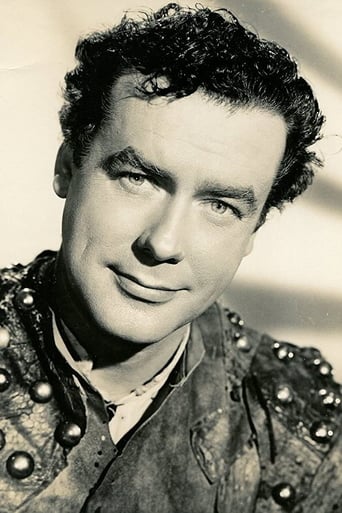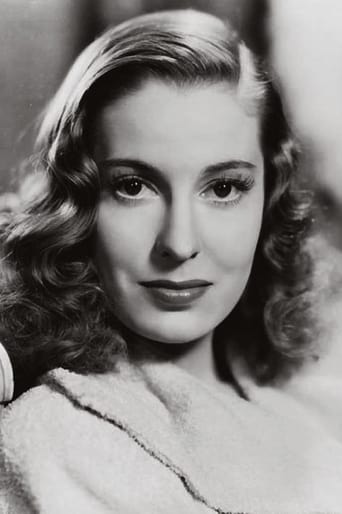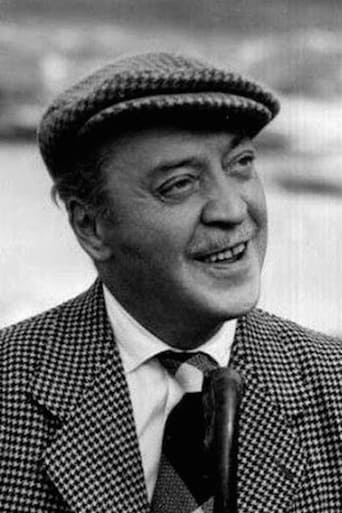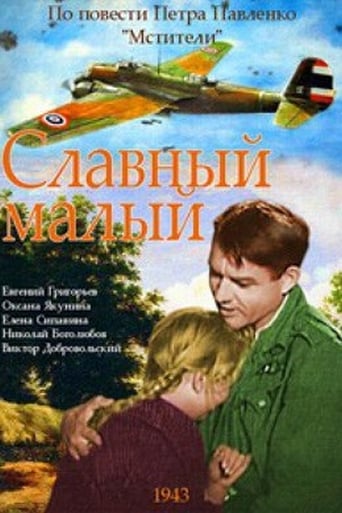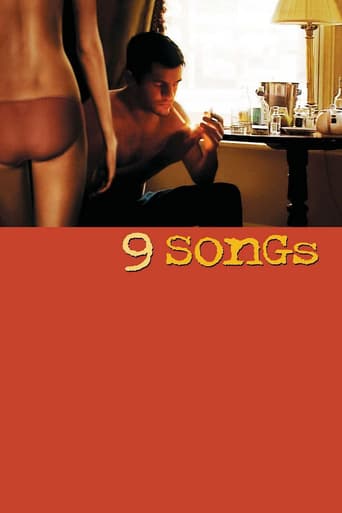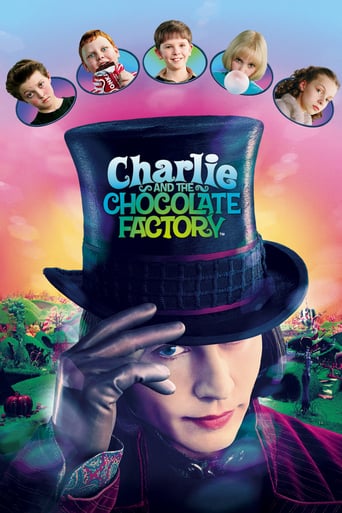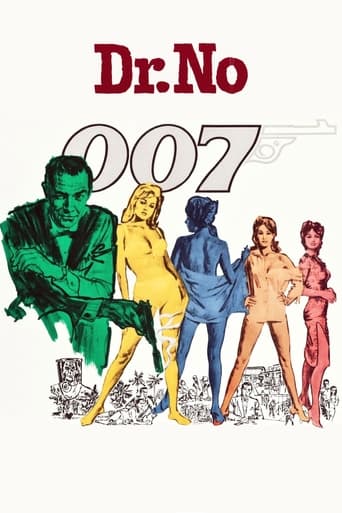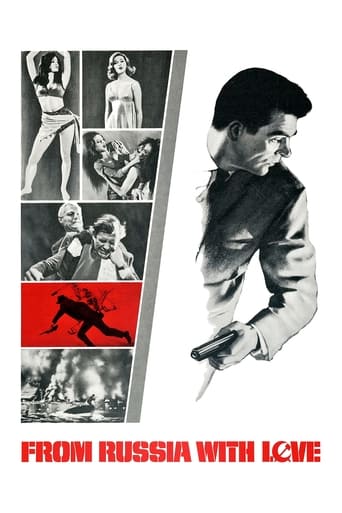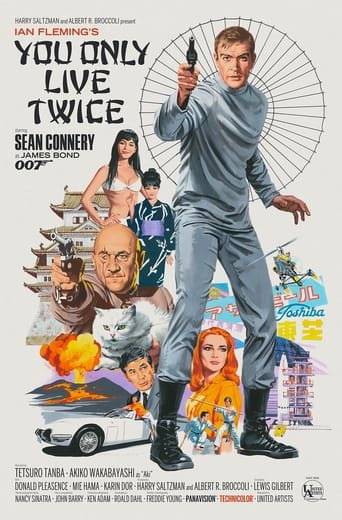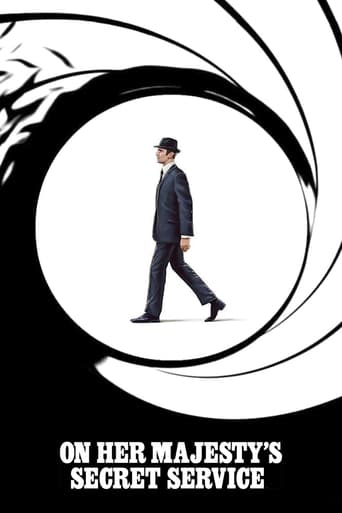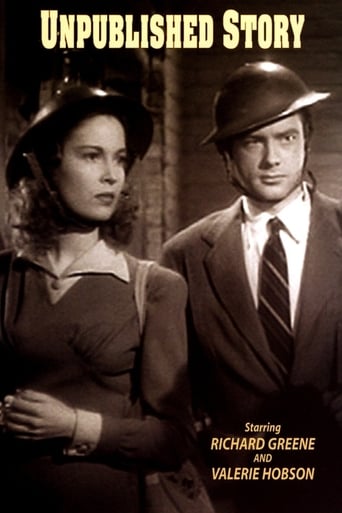
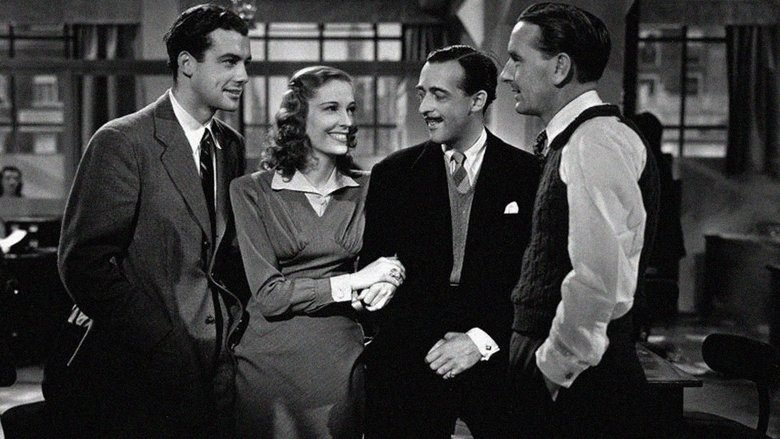
Unpublished Story (1942)
Morale-boosting story released in the middle of World War II. A journalist uncovers a peace organisation at the centre of disreputable dealings.
Watch Trailer
Cast


Similar titles
Reviews
Reporter Richard Greene (Randall) returns from Dunkirk and heads straight to his newspaper HQ to tell the story. He is motivated to get the truth to the public and cannot abide peace sympathisers such as the "People for Peace" movement who he wants to expose. However, this group seems to have an ulterior motive. Valerie Hobson (Carol) is a rookie reporter who joins him in his adventures.Well, it's all rather boring. The accents are quite difficult to understand – you have to adjust yourself to the rapid plumy diction. What on earth are they saying? The Scottish bloke speaks the most clearly! Once you get over this you wait for a plot but after about 50 minutes there still isn't anything going on. It's a film about reporters during WW2 but no strong lead story. What is this film about? Worse, we have to follow proceedings as led by the thoroughly dislikable Richard Greene. The rest of the cast also fall flat apart from Valerie Hobson. You spend a lot of this film waiting for something to happen and daydreaming about better things.
Fast and sometimes exciting tale of a newspaper during the London blitz, amid Nazi conspiracies to undermine morale.Richard Greene is the correspondent who makes his way back to his Fleet Street newspaper from Dunkirk and Valerie Hobson is the novice lady reporter who is reassigned from the food column to stories of more substance.One of the subjects is the People for Peace, a small but busy group of men claiming that Hitler actually has the morality of a Buddhist monk or something. One of their henchmen is an almost unrecognizably young Andre Morell, putting on a curious accent. Their motto is "Peace in Our Time." Poor Neville Chamberlain. He could have prevented World War II simply by declaring war on Germany at the Munich meetings.The two intrepid reporters, dashing about the strepitous city, barely escaping the collapse of burning walls, expose the pernicious cabal and fall in love in front of a backdrop of the city in ruins except for the dome of St. Paul's.At the climax, the endearing Scotsman who edits the paper reads tomorrow's lead, which goes something like, "Goering has said he will bomb London flat because it is the heart. Very well. The heart will continue to beat." The reason the line is memorable is not so much for its defiant quality but because, a few years later, the Allies were demolishing one German city after another and the ruins were papered over with signs proclaiming, "Unsere Mauern brechen, unsere Herzen nicht," precisely the same sentiment and a similar analogy. And in fact the post-war Strategic Bombing Survey found that bombs were very good at tearing up cities but poor at breaking citizens' morale.But let's get back to Valerie Hobson. She's tall, slender, beautiful, and oozes elegance. She looks rather like Cate Blanchett except that she lacks Blanchett's extraordinary eyes. Richard Greene is adequate as the heroic reporter who helps save Hobson's bacon from the likes of that villainous, scowling Andre Morell.It's not a big budget movie but the production values are high enough so that we're not distracted by substandard sets. And there's hardly a dull moment -- or a brutal one. No scenes of battle and only a bit of gunfire towards the end. And a nice, familiar cast, with Basil Radford and Miles Malleson in support. Sometimes it seemed that the British film industry had only half a dozen principal performers during the war, and no more than double that number into the 50s.Other movies have been made about the blitz but they're either sentimental stories of worried families, like "Mrs. Miniver" or semi-autobiographical and more realistic accounts like John Boorman's "Hope and Glory." This one avoids sentimentality almost completely in favor of a sort of "training film" approach, only instead of "Assembly And Use Of The Sten Gun," it's "Optimal Responses to Bombing." That last scene, with the two lovers posed against a dim sun rising over a ruined urban landscape is touching and informative. It's a useful reminder of just how destructive war can be. America hasn't fought a war on its own ground for 150 years.A reminder might stimulate our thoughts a bit more, at least among those of us who seem so anxious to kill them all and let God sort them out. The only people who seem more warlike than those who have never known war are those who have never known anything else. I blame hormones. We have to get rid of all that testosterone. Imagine if all the men in the world were turned overnight into fairies. All they would do is try to insult each other to death.
This is a superior early wartime 'message picture' containing a great deal of real footage of the London Blitz, not all of which I recognised. Richard Greene and Valerie Hobson play two journalists working for the newspaper, the London Gazette, and much of the film takes place in the newsroom. The film's plot largely concerns a British 'peace society' which has been heavily infiltrated by Nazi agents. Anyone who doubts that that is how things worked with the Nazis has only to read the two books INSIDE THE GESTAPO and INSIDE INFORMATION by the high-ranking Gestapo defector (who reported directly to Heydrich) Hansjuergen Koehler to get the true picture. That is precisely how the Gestapo used the 'peace societies', as fronts for espionage and subversion. The Soviet Union did the same thing. It is such a standard and obvious technique that it is a wonder that anyone is left who does not see it clearly, but there are always fools aplenty. This film's message is thus very direct, but also very correct. It is warning the British public not only about appeasers, which abounded in Britain (Neville Chamberlain being the most prominent!), but about the woolly-headed idealists pursuing 'peace', which simply cannot be done with people like the Nazis. (See Dame Flora Robson's amazing performance in GUNS AT BATASI, 1964, for perhaps the best portrayal of a 'peace junkie' out of her depth.) There are numerous old faithfuls in the supporting cast, Basil Radford as a good buy, Roland Culver as a bad guy, Andre Morrell as a Gestapo agent, Frederick Cooper as a 'peace junkie' who discovers he has been manipulated by the Nazis and who then is to be seen pouring more sweat from terror than if he had been under twenty arc lights, and plenty of other excellent character actors. The film is well directed by Harold French, one of the directors of the three excellent Somerset Maugham anthologies (QUARTET, TRIO, and ENCORE), and who lived to be 100 years old (1897-1997)! Strange to think the last feature film he directed was in 1955 (THE MAN WHO LOVED REDHEADS with Moira Shearer) and that he then lived another 42 years. I wonder what he was doing. The film is based on a story by its producer, Anthony Havelock-Allan, famous for producing David Lean's BRIEF ENCOUNTER (for which he was uncredited), Lean's GREAT EXPECTATIONS, Lean's RYAN'S DAUGHTER, Franco Zeffirelli's ROMEO AND JULIET, and many more. He died in 2003, just before turning 99. So between them, the producer and the director of this film lived for just under 200 years. What were they taking? Maybe if we all watch this film 100 times we will all live forever.
An English journalist just back from Dunkirk writes a story blasting a London-based peace- in-our-time organization, but the story is killed by a government agency. Are there Nazi sympathizers or just cautious bureaucrats in the agency? Is the peace group led by innocent dupes or by ruthless Nazi agents? The reporter intends to find out.The movie isn't A-list, but it's better than a programmer. It's a craftsman-like piece of work. In feature roles are two first-rate British character actors, Roland Culver (The Pallisers, Dead of Night, On Approval) and Miles Malleson (Kind Hearts and Coronets, The Man in the White Suit).


